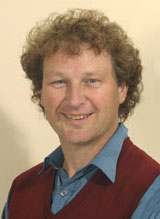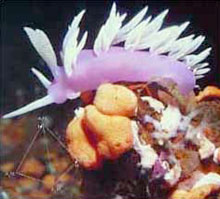Email hamish.spencer@otago.ac.nz
Phone 64-3-479-7981

Teaching
Research Interests
- The maintenance of genetic and epigenetic variation in populations
- The population genetics of genomic imprinting
- Population-genetic models of maternal selection
- New Zealand molluscs
- Population-genetic theory for frequency-dependent selection
- Phenotypic plasticity
- History of eugenics
- Applications of phylogenetics to NZ taxa
Public Outreach
History of Eugenics in New Zealand: Otago Access Radio Interview with Marvin Hubbard, 29 June 2018.
Checklist of Living Mollusca Recorded from the New Zealand Exclusive Economic Zone
Connecting Communities with Science. Interview with Lynley Hargreaves, 16 February 2017
Working with Iwi
Encounters and Exchanges Conference in partnership with Blenheim communities
Connecting Communities with Science. Interview with Lynley Hargreaves, 16 February 2017
Newspaper Articles on Science Topics
Spencer, H.G. 2021. As special as a moa, Otago Daily Times, 6 September 2021.
Spencer, H.G. 2021. Recognising what remains to be known, Otago Daily Times, 8 May 2021.
Spencer, H.G. 2020. A ringing endorsement for clean streams, Otago Daily Times, 12 December 2020.
Spencer, H.G. 2020. Shags for sure. Otago Daily Times, 25 July 2020.
Spencer, H.G. 2020. Science: Nature vs nurture debate dumb. Dominion Post, 22 June 2020.
Spencer, H.G. 2020. Naming the crisis. Otago Daily Times, 15 February 2020.
Possible PhD, MSc and BSc(Hons) Research Projects
I currently have two PhD projects in evolutionary theory available:
1. New Evolutionary Theory for the Maintenance of Genetic Variation (in conjunction with Tim Connallon, Monash University)
2. Novel Evolutionary Models Incorporating Epigenetic Inheritance (supported by the Marsden Fund)
I am also keen to hear from suitable students interested in other areas. Please contact me if you are interested in research projects in any of the following topics.
-
Population-Genetic Models for Genomically Imprinted Loci
Genomic imprinting describes the unequal expression of paternally and maternally inherited genes in mammals. We are interested in the population-level consequences of this form of non-Mendelian expression. -
Evolutionary Origin of Genomic Imprinting
There have been several hypotheses proposed for the evolution of the unequal expression of paternally and maternally inherited genes in mammals. We are interested in examining these hypotheses rigorously, using novel mathematical models. -
Phylogeography of Molluscs
Molluscs often provide ideal models to investigate questions in phylogeography, including questions about the importance of dispersal. New Zealand (and the South Pacific in general) has a diverse terrestrial and marine molluscan fauna that has already provided such model systems. We are interested in using novel DNA data sets in phylogeographic investigations. -
Testing the Power to Detect Neutral Polymorphisms
Many of the statistical tests of the neutral hypothesis of evolution do not detect non-neutral systems easily. This project involves examining the power of a number of these tests for polymorphisms constructed by mutation and selection. -
Frequency-Dependent Selection and Genetic Variation
In theory, frequency-dependent selection can maintain large numbers of alleles in a population. We are interested in quantifying this ability and seeing if, in fact, this form of selection might be responsible for the standing variation observed in natural populations. -
Evolutionary Genetics of Parental Effects
It is becoming increasingly clear that parents pass on more than just their genes to the offspring. For example, experiments with a species of weedy cress have shown that non-genetic factors inherited from grandparents can even alter the genetic constitution of individual plants. This project will construct mathematical models that show how various parental effects can have long-term evolutionary implications.
Current & Recent Projects

- Natural selection and the maintenance of genetic and epigenetic variation
- Population-genetic models of selection at genomically imprinted loci
- Phylogenies of pelicans, shags, cormorants and their relatives (with Dr Martyn Kennedy and Associate Professor Nic Rawlence)
- Models of the evolution of genomic imprinting (with Prof Andrew Clark)
- Phylogeny of molluscan genera in the gastropod families Trochidae and Calliostomatidae (with Dr Kirsten Donald and Dr Bruce Marshall)
- Phylogeny of Australasian nudibranchs (with Dr Martyn Kennedy, Dr Richard Willan and Prof Steve Smith)
- Evolution and phylogeography of Australasian intertidal communities, especially those associated with the Bull Kelp Durvillaea (with Prof Jon Waters)
- Population genetic models with spatial structure (with Dr Peter Whigham and Dr Grant Dick)
- Modelling the Developmental Origins paradigm (with Prof Peter Gluckman)
- Phylogeny and biogeography of New Zealand landsnails (with Dr Martyn Kennedy and Dr Fred Brook)
- History of eugenics in New Zealand (with Assoc Prof John Stenhouse and Prof Diane Paul)
Recent and Current Postdocs and Students
- Philip Greenspoon, Postdoctoral Fellow, Epigenetics and Evolutionary Theory
- Rebecca Cumming, PhD, Evolutionary Biogeography and Patterns of Dispersal in the Intertidal Slug Onchidella
- Gert-Jan Jeunen, PhD, Evaluating Environmental DNA (eDNA) Metabarcoding as a Method for Monitoring Biodiversity in Marine Ecosystems
- Katherine Lockton, MSc, Genetics of Lasaea in New Zealand
- Bryce Peebles, PhD, Chiton Skeletal Genesis: Mechanics and Effects of Acidification
- Gertje Petersen, PhD, The Role of Molecular Genetic Variation and Population Structure in the Genetic Improvement of the Honeybee
- Kerry Walton, PhD, Ancient DNA Methods and Museum Biological Specimens
- Scott Davidson, PhD, An Experimental Test of the Robustness of Sensitivity Analysis
- Tim Byrne, PhD, Development and Comparison of Approaches to the Genetic Improvement of Sheep
- Kirsten Donald, Postdoctoral Fellow, The Co-evolution of Topshells and Trematodes (supported by the Allan Wilson Centre for Molecular Ecology and Evolution)
- Crid Fraser, PhD, Phylogeography of Bull Kelp, Durvillaea spp.
- Jemma Geoghegan, PhD, Mathematical Population Epigenetics (supported by the National Research Centre for Growth and Development)
- Martyn Kennedy, Postdoctoral Fellow, The Behaviour and Phylogeny of the Pelecaniformes (supported by the Allan Wilson Centre for Molecular Ecology and Evolution)
- Anna Santure, PhD, Quantitative Genetic Models Incorporating Genomic Imprinting
- Renate Sponer, PhD, Molecular Evolution in the Cosmopolitan, Brooding Brittle Star
- Bastiaan Star, PhD, Population Structure and Genetic Variability
- Rick Stoffels, Postdoctoral Fellow, Population-genetic Theory of Frequency-dependent Selection (supported by the Marsden Fund )
- Meredith Trotter, PhD, Frequency-dependent Selection and the Maintenance of Genetic Variation
- Anton Weisstein, Postdoctoral Fellow, Population-genetic Models of the Evolution of Genomic Imprinting (supported by the Marsden Fund)
- David Winter, PhD, Phylogeography of Pacific Landsnails (See also David's blog) (supported by the Allan Wilson Centre for Molecular Ecology and Evolution)
- Alexey Yanchukov, Postdoctoral Fellow, Modelling the Evolutionary Genetics of Parental Effects (supported by the Marsden Fund )
Keywords
- population-genetic theory, genomic imprinting, phylogenetics, plasticity, molluscs, epigenetics
